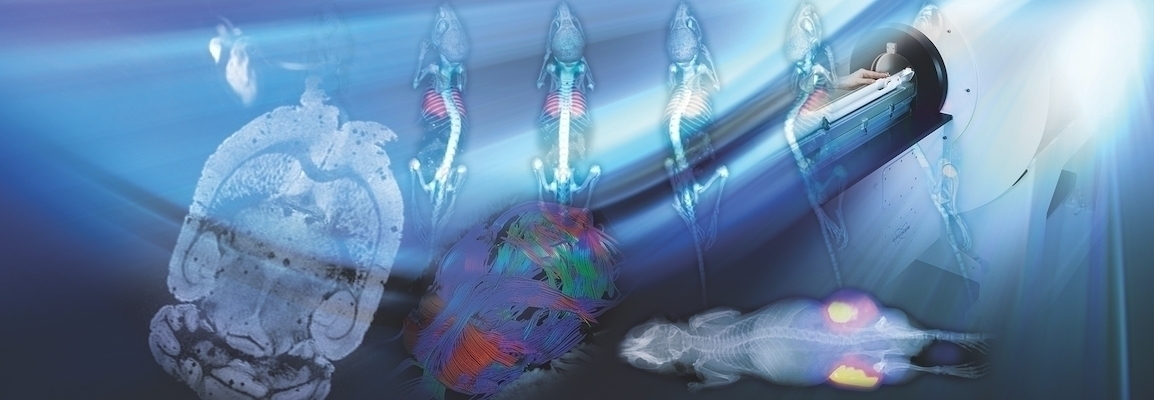

The Role of Preclinical PET/SPECT/CT Image in Translational Cancer Research and Targeted Cancer Therapies
Cancer is a dynamic disease and becomes heterogeneous during the progression. The heterogeneity of tumor will result in distinct molecular signatures with different degree of sensitivities to the treatments that might be precisely monitored by non-invasive imaging modalities such as PET/SPECT/CT. These imaging results may help us not only knowing more of cancer itself but also may precisely detected the targets of tumors for further effective drug development and patient stratification.
In this webinar, Dr. Pradip Chaudhari, will give insights into how to identify and localize the tumor in the animal model, to characterize the tumor by specific molecular target, to monitor the intricate pathways in tumorigenesis and to evaluate the treatment outcome by non-invasive preclinical PET/SPECT/CT image. These image results are not limited in the preclinical application but may move to the clinical end for further drug development and patient selection.
In Dr. Gabriela Kramer-Marek’s talk, she will address on targeted molecular image in cancer by board range of targeted -PET radiotracer to select patients accuratly, to understand intrinsic resistance mechanisms or the emergence of acquired resistance following treatment initiation and to choose the most effective combination regimen in circumstances in which single-agent therapies are insufficiently effective. These works will enable smart monitoring of immunotherapies and expand opportunities for personalized medicine approaches.
This webinar took place on August 27th, 2020
What to Expect
Dr. Chaudhari will focus on how to use preclinical PET/SPECT/CT for basic research of cancer biology and anti-cancer drug development. Dr. Kramer-Marek will discuss affibody-based PET agents as potential new imaging biomarkers for personalized assessment of drug resistance and early prediction of patient treatment responses.
Key Topics
- Visualized and quantitatively analyzed the process of intricate pathways in cancer initiation, progression and metastasis by PET/SPECT/CT
- The applications of non-invasive image in translational cancer research and anti-cancer drug development
- Early detection of cancer by immune-PET
- Evaluation the immunotherapy outcome and approaching personalized medicine by immune-PET agent
Who Should Attend
The webinar would appeal to basic biologists, radiochemists, clinicians and drug developers interested in the applications of non-invasive image in translational cancer research, cancer immunotherapies and personalized medicine. Researchers in the field of cancer biology and immunotherapy who are interested in immune checkpoint inhibitors would also benefit.
Speakers
Dr. P. R. Chaudhari
Senior Scientist, Comparative Oncology & Small Animal Imaging Facility, Advanced Centre for Treatment, Research & Education in Cancer (ACTREC), Tata Memorial Centre, Kharghar, Navi Mumbai
Dr. Pradip Chaudhari obtained his post-graduate degree in Veterinary Science from Bombay Veterinary College, Mumbai. Immediately after completion of his postgraduate studies, he joined Bhabha Atomic Research Center where he worked in the field of basic and applied nuclear medicine research. He also obtained post-graduate diploma in medical radioisotopes and technology as well as doctoral degree in Applied Biology from University of Mumbai. He worked exclusively on animal model development for osteoporosis, cancer and arthritis. He has also explored application of nuclear medicine diagnostic procedures for veterinary patients that has laid a foundation of dedicated Veterinary Nuclear Medicine Centre at Bombay Veterinary College. He has played instrumental role in biological evaluation of various SPECT / PET diagnostic and therapeutic radiotracers. He has initiated a nuclear imaging for large as well as small animals. His doctoral work involving biological evaluation of therapeutic agents for rheumatoid arthritis and bone pain palliation has translated for clinical application in humans.
Dr Gabriela Kramer-Marek
Team Leader
Dr Gabriela Kramer-Marek received her Ph.D. degree in Medical Physics in 2005 from Silesian University, Poland, and the following year joined the Radiation Oncology Branch, NCI/NIH, Bethesda, USA, to work as a postdoctoral research fellow on the development and characterisation of molecular probes for in vivo detection and quantification of tumour-specific markers. In 2012 she accepted her first faculty position (Research Assistant Professor) in the Department of Medicine, at the Indiana University, Indianapolis, US. From July 2013 she has been leading the Preclinical Molecular Imaging Team at the Institute of Cancer Research in London, UK.